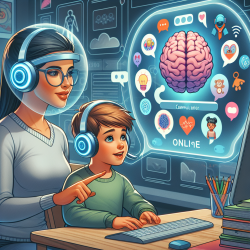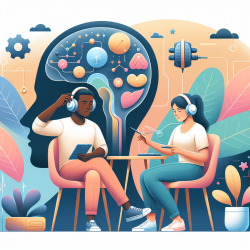The world of gaming is vast and complex, especially for medical students who often turn to games as a form of relaxation amidst their rigorous academic schedules. A recent study titled "Predicting the Time Spent Playing Computer and Mobile Games among Medical Undergraduate Students Using Interpersonal Relations and Social Cognitive Theory: A Cross-Sectional Survey in Chongqing, China" sheds light on how interpersonal relations and social cognitive theory constructs like self-efficacy, self-control, and expectations influence gaming behaviors.
The Study's Key Findings
This cross-sectional survey involved 1,557 medical undergraduate students from Chongqing Medical University and Chongqing Medical and Pharmaceutical College. The study revealed that approximately 30% of the participants played computer games, while a significant 70% engaged with mobile games. The findings highlighted several crucial factors:
- Interpersonal Relations: Students with high interpersonal relations scores spent more time playing both computer and mobile games.
- Self-Efficacy: Lower self-efficacy was associated with increased gaming time.
- Self-Control: Lower self-control correlated with longer durations spent on mobile games.
- Expectations: Students with low expectations tended to spend more time gaming.
Implications for Practitioners
The insights from this study can be invaluable for practitioners working with students or individuals struggling with gaming addiction. Here are some ways practitioners can leverage these findings to improve their skills:
- Enhance Self-Efficacy: Practitioners can focus on boosting self-efficacy through motivational interviewing techniques that emphasize repetition, reinforcement, and encouragement. This approach can help reduce screen time among students.
- Encourage High Expectations: Setting realistic yet challenging expectations for gaming behavior can motivate individuals to limit their game time and focus on healthier activities.
- Strengthen Interpersonal Skills: Since high interpersonal relations correlate with increased gaming time, practitioners can work on enhancing social skills to reduce reliance on games as a social tool.
- Promote Self-Control Techniques: Teaching strategies that enhance self-control can help individuals manage their gaming habits more effectively.
A Call for Further Research
This study opens the door for further exploration into the intricate relationship between gaming behaviors and psychological constructs. Future research could delve deeper into understanding how different types of games impact these factors or explore interventions that effectively address gaming addiction in various populations.
The study also highlights the need to consider additional variables such as age diversity, cultural differences, and the role of environmental influences in shaping gaming behaviors. By expanding research in these areas, we can develop more comprehensive strategies to support individuals in managing their gaming habits.
If you're interested in exploring the original research paper for more detailed insights, please follow this link: Predicting the Time Spent Playing Computer and Mobile Games among Medical Undergraduate Students Using Interpersonal Relations and Social Cognitive Theory: A Cross-Sectional Survey in Chongqing, China.










